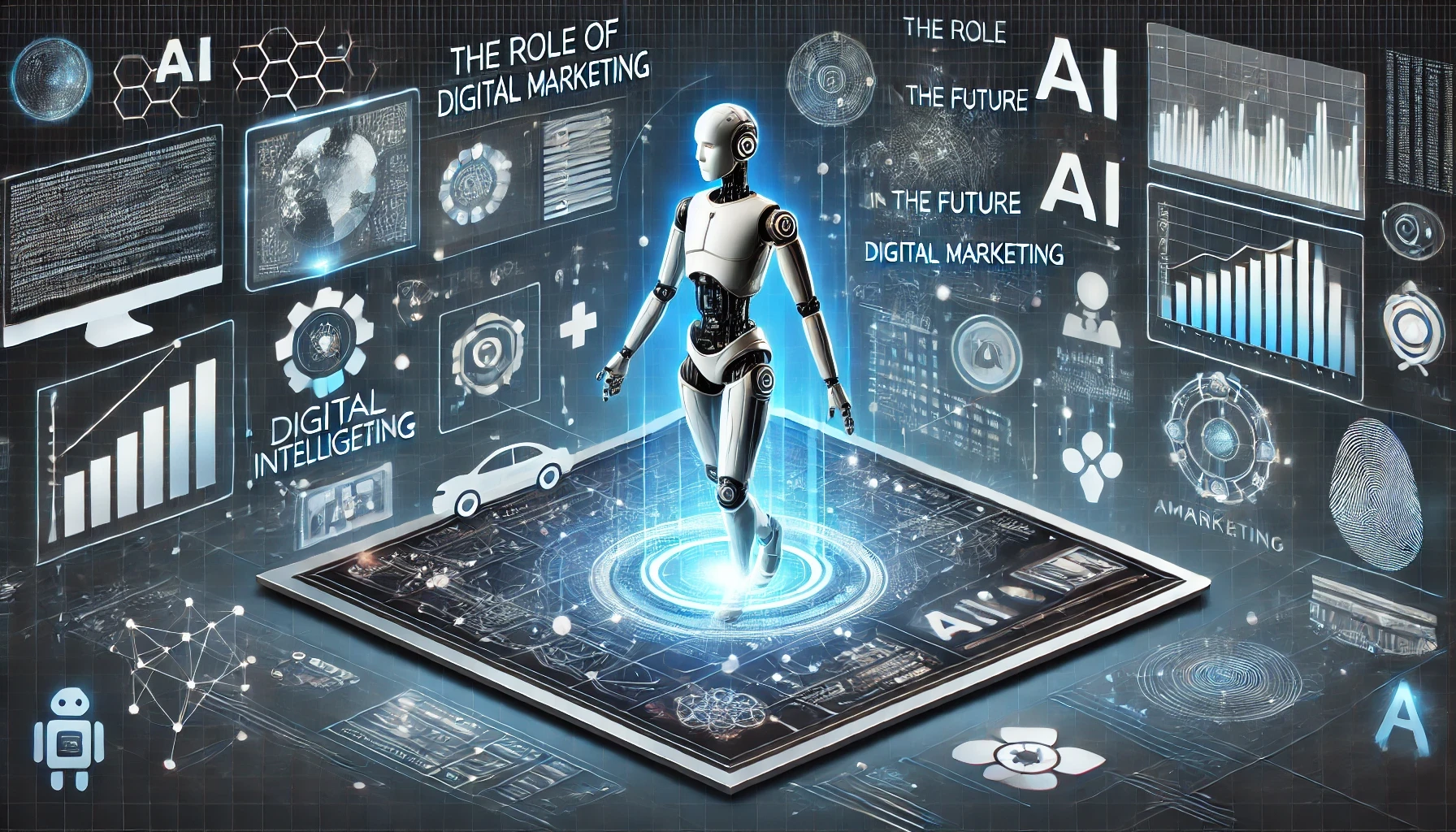The Role of AI in the Future of Digital Marketing

Introduction
Artificial Intelligence (AI) is rapidly transforming the digital marketing landscape, offering unprecedented opportunities for businesses to optimize their strategies and engage with customers in more personalized and efficient ways. As AI technology continues to evolve, its role in the future of digital marketing will only grow more critical. Here's how AI is shaping the future of marketing and why it's essential for staying competitive.
1. Personalization at Scale
One of the most powerful advantages of AI in marketing is its ability to deliver highly personalized experiences at scale. AI algorithms analyze vast amounts of data, from user behavior to purchase history, allowing brands to offer tailored recommendations, personalized emails, and targeted ads. This level of customization not only improves customer satisfaction but also boosts conversion rates.
2. Improved Customer Insights
AI tools can process and analyze large datasets much faster than humans, providing marketers with deeper insights into customer behavior. AI-powered analytics tools track patterns, predict future trends, and offer actionable insights, helping businesses make data-driven decisions and refine their marketing strategies.
3. Automated Customer Interactions
AI is revolutionizing customer service through chatbots and virtual assistants. These tools can handle a wide range of inquiries, from answering common questions to processing orders, 24/7. With AI, brands can provide instant support and maintain a consistent, high-quality customer experience, while freeing up human resources for more complex tasks.
4. Enhanced Ad Targeting
AI significantly improves ad targeting by analyzing user behavior and preferences in real-time. AI-driven platforms like Google Ads and Facebook Ads use machine learning algorithms to optimize ad placements and budgets, ensuring that ads are shown to the right audience at the right time. This results in more effective campaigns and better ROI.
5. Content Creation and Optimization
AI tools are becoming increasingly capable of generating content, from blog posts to social media updates. While AI-generated content may still require a human touch for creativity, these tools can save time and streamline the content creation process. Additionally, AI can analyze the performance of content and suggest improvements, ensuring it’s optimized for SEO and user engagement.
6. Predictive Analytics
Predictive analytics powered by AI allows marketers to anticipate future customer behaviors based on historical data. This capability helps businesses forecast trends, identify potential leads, and develop strategies that are more likely to succeed. By predicting what customers will do next, brands can stay one step ahead of their competition.
7. AI in Visual Search
Visual search is another area where AI is making strides. AI-powered tools like Google Lens and Pinterest's visual search feature allow users to search using images rather than text. This trend will become increasingly important as e-commerce brands leverage AI to help customers find products more easily through image recognition.
Conclusion
The role of AI in digital marketing is expanding rapidly, and its impact on the industry will only grow stronger in the years to come. From personalized customer experiences to data-driven insights and automated tasks, AI is transforming how businesses connect with their audiences. As AI technology continues to advance, staying ahead of the curve will be crucial for brands looking to remain competitive in the digital marketing world.
©